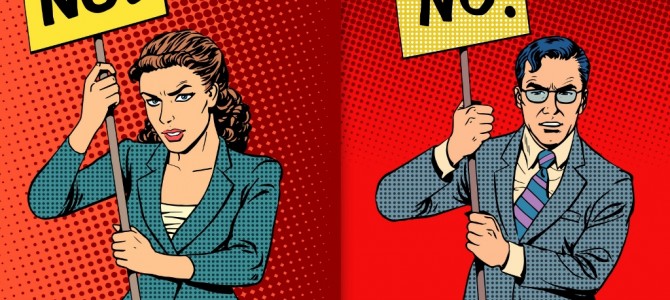
There are many reasons I tend not to vote. When I was a journalist, metro columnist, and editorial board member, I avoided voting as a matter of professional policy. Journalists should shun voting or be transparent about who they’re voting for if they’re going to cover policy. Pundits? To some extent, they should treat all politicians as the opposition.
Not that it would have mattered. Locally, I’ve lived nearly my entire adult life in iron-clad liberal districts that offer almost no competition past the primary stages of an election. There’s nothing wrong with people clustering into ideologically congenial locales. We have the space. We used to have the federalism. Americans want to live with likeminded neighbors and vote for officials who represent the worldviews of those communities. When Democrats tell you they want competitive districts for the health of democracy, what they mean is they want uncompetitive Republican districts broken up for the health of their political fortunes.
In any event, my vote really wasn’t that important at all. Most of the time, neither is yours.
Yet, from school-age onward, we are instructed to “get out the vote” or “rock the vote.” You must get “involved”—which nearly always entails getting involved politically. (Because the Left—and increasingly the Right—believes politics is the wellspring of all good things.) Also, of course, the most morally bankrupt and un-American platitude about voting ever concocted: “If you don’t vote you don’t have a right to complain.”
As far as I can tell, the Constitution makes no such stipulation for living in the nation or participating in debate. Democracy is not a religion. You are not denied entry into heaven because you’ve decided neither Donald Trump nor Hillary Clinton will do. Notwithstanding the sanctimonious lecturing of many politicians and pundits, voting isn’t civic duty. Millions of Americans avoid voting as a political statement. Millions more should avoid it because they have no clue what’s going on. Not voting is a valid statement. It can be an assertive expression of free speech.
A decade ago, Pew Research Center for the People and the Press categorized voters into a number of distinct groups. There are “regular voters”—adults who are registered to vote and tend to participate in nearly every election they can. They constitute roughly a third of the adult population of the United States. Next, there are the “intermittent voters,” or Americans who are registered to vote but vote less regularly than “regular voters” and usually participate only in what they view as the most consequential elections. They make up around 20 percent of the population. Then there are “unregistered adults”—Americans who say they are not registered to vote and who obviously do not vote and do not care to vote. They account for 22 percent of the population. They still, for now, have all the constitutional rights as you do.
Why don’t people vote? For the reasons you might expect. A few years back the Caltech/MIT Voting Technology Project studied that question and found that the most common reasons given were that people were too busy or had a scheduling conflict (17 percent), had an illness or disability (15 percent), had no interest in the process (13 percent), or had a dislike for candidates or issues that are being offered (13 percent). All these are perfectly fine reasons for not voting.
Then again, 6 percent couldn’t figure out the voter registration process, 3 percent could not find a polling place that was convenient, 3 percent had transportation problems, and 0.2 percent could not get to the polls because of inclement weather. These people are not exactly heroes of self-determination.
The failure of Americans to vote is the occasion of perpetual lamenting in Washington. It’s such a big problem that we see an increasing number of people arguing that Americans should be coerced to vote—despite whether they are educated enough to do so, whether they have any desire to do so, or whether they have any interest in the candidates available to them. Strong-arming citizens of a free nation to participate in democracy is laughably contradictory. Or perhaps it tells us a bit about how democracy is viewed by its most ardent proponents.
People like Peter R. Orszag, the former director of Obama’s Office of Management and Budget, not only argued there should there be social pressure to vote, it should be compulsory. “The U.S. prides itself as the beacon of democracy, but it’s very likely no U.S. president has ever been elected by a majority of American adults,” Orszag wrote before the last general election. And who is to blame for this? “It’s our own fault—because voter participation rates are running below 60 percent, a candidate would have to win 85 percent or more of the vote to be elected by a majority.”
Others agree. William Galston, a scholar at the Brookings Institution, argued that forcing everyone to vote would temper political “polarization.” Activists and partisans have a disproportionate influence in government, while moderates and unaffiliated voters are always on the outside. If voting were compulsory, then our government would be responsive to groups less inclined to participate in the political process—the young, poor, and uneducated. If we forced everyone to vote then everyone would become more interested in what was going on in Washington and educate themselves so as to make educated decisions.
There is little evidence proving this contention. In fact, some of the most active elections have produced some of the contentious times in Washington. In 2008, 57 percent of voters turned out—which was the largest number to participate since that other placid era that came after the 1968 election.
Voting is not the central promise of American citizenship. The central promise of the United States is laid out in the Constitution, which doesn’t even mention the “right” to vote. At some point, primarily because of the ugly history of racism, it became taboo to argue that many Americans aren’t prepared for the ballot. But rather than encouraging the inattentive and unwilling to vote, we should be campaigning against democratic excess, which the Founders feared. The vapid argument that you must vote to have an opinion incentivizes people to cast ballots without the proper knowledge. It solidifies bad ideas about majoritarianism and undermines individualism and gives another reason for major parties to be complacent. In the end, demanding (or forcing) people vote for immoral, corrupt demagogues is one of the most un-American things I can think of.









